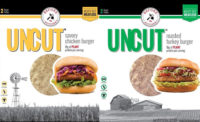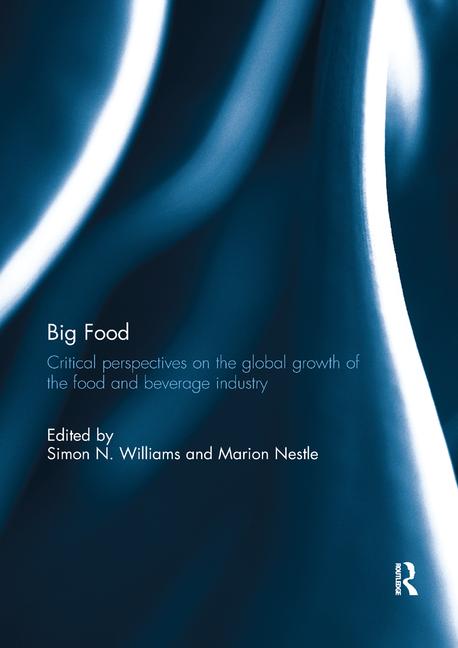Burgers and the American Diet
Four in five Americans agree burgers are a good source of nutrients

While consumption of beef is down over the past decade, burgers endure as a mainstay of the modern American diet. New research from Mintel reveals that not only do 82% of consumers agree that burgers are a good source of nutrients, but another 80% would pay more for burgers made with premium ingredients. With three in five (62%) consumers saying that they love burgers, there’s no denying their popularity.
However, as beef faces negative health perceptions, consumers show interest in a wide array of non-beef burger alternatives. In fact, nearly half of consumers would like to see more chicken burgers (46%) on menus and two in five (42%) are interested in more turkey burgers. Another one third (34%) of Americans are interested in seeing bison/buffalo as a burger option on more menus.
Interest in non-beef burger offerings is highest among Millennials, who are the most likely generation to agree that healthiness of menu items is the most important factor when choosing a restaurant (64%). Indeed, three in five (58%) Millennials would like more chicken burgers and half (52%) would like more turkey options on menus. Overall, Millennials are more interested than any other generation in every non-beef burger Mintel surveyed**.
"While the majority of Americans view burgers as a good source of nutrients, this is more indicative of health concerns being a non-factor as opposed to seeing burgers as a healthy choice. Further, we find that the decreasing consumption of beef is not affecting consumption of burgers, driven by Americans seeking more non-beef burger options,” said Caleb Bryant, Foodservice Analyst at Mintel. “Non-beef burgers appeal to diners for a number of reasons. Beyond offering less fatty, more nutritious alternatives, non-beef burgers tend to have a ‘wow’ factor as they are new and different to many consumers. Having a line-up of non-beef burgers can help a restaurant’s menu stand out from other restaurants’ burger offerings.”
As healthy dining trends are driving innovation in non-beef burgers, Mintel research indicates that grass-fed beef burgers are also piquing interest. Four in five (79%) burger eaters believe that grass-fed beef is higher quality than regular beef. This is motivating 43% of consumers to want more grass-fed burgers on restaurant menus.
Further, knowing the origins of their food is increasingly important to consumers, and this is especially true among burger eaters. Three in five (59%) consumers agree that they want to know the origin of beef in burgers, including 68% of Millennials.
“With its purported superior taste, healthfulness claims and ‘feel good’ connotations, burgers made with grass-fed beef are an especially important foodservice trend right now. Diners today are interested not only in food that is good for them, they also want food that makes them feel good. This is magnified for food that comes with a ‘story,’ as consumers increasingly want to know where their food was made and how it was prepared and produced. This presents an opportunity for restaurants to better compete with retail packaged beef, which often times does not provide such information to consumers,” continued Bryant.
Restaurants continue to re-imagine burgers in order to keep consumers interested in the menu staple, proven by the mere 20% of burger eaters who say that burgers are a boring choice when eating out. Such innovation is supported by research from Mintel Menu Insights, which finds that the menu incidence of “cheeseburger” decreased by 15% and “burger” decreased by 6% from Q4 2012 to Q4 2015. However, more descriptive items such as “bacon burger” (85%) and “Southwest burger” (34%) saw significant growth on menus.
In line with the 47% of consumers who want more premium burger buns at restaurants, Mintel Menu Insights reveals significant growth of pretzel (97%), kaiser (93%) and brioche (59%) buns on menus from Q4 2012 to Q4 2015. Similarly, half (50%) of consumers want more variety of cheeses for burgers, and restaurants are calling out specific cheeses on menus more often. While unspecified "cheese” as a topping for burgers fell by 11%, mozzarella (29%) and pepper jack cheese (13%) have grown more popular on menus from Q4 2012 to Q4 2015.
“While burgers are a favorite for many Americans, restaurants must work hard to make their burgers stand out. Consumers are interested in new burger formulations, allowing restaurants to take chances with their menu. This gives restaurants the opportunity to branch out with multiple ingredient options and toppings to separate themselves from competitors, and can be accomplished by offering high quality buns and cheeses, as consumers are willing to pay more for premium ingredients for a food they love,” concluded Bryant.
Looking for a reprint of this article?
From high-res PDFs to custom plaques, order your copy today!





